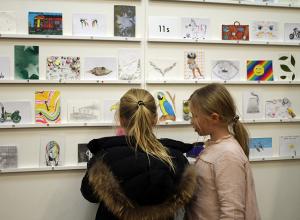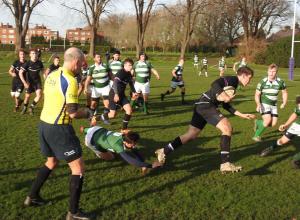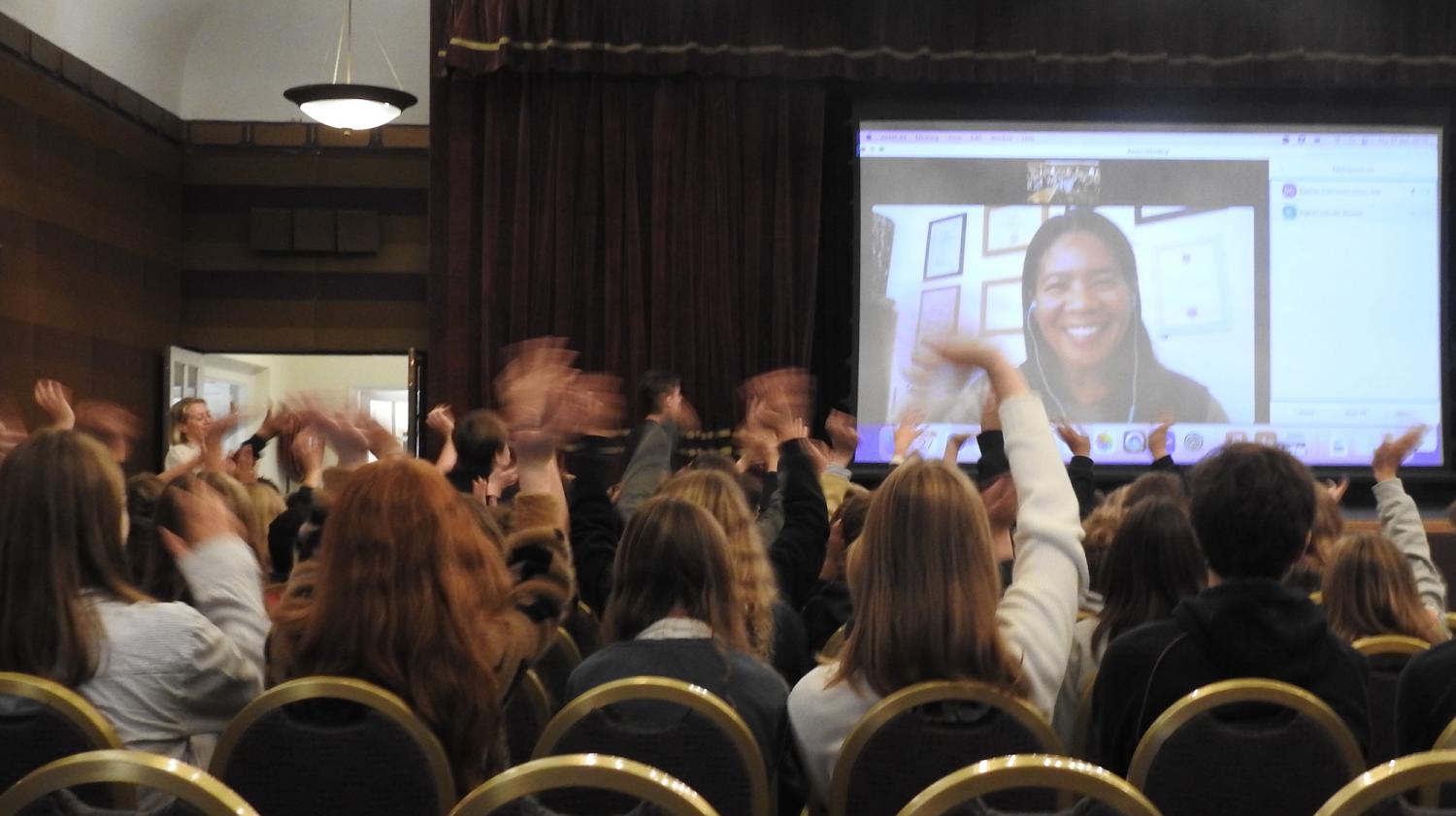
Black history still remains a series of missing chapters from British history but in October Harrodian teachers have been busy making up for the omissions of the past
In a powerful presentation delivered both to assemblies of Heads of Department and Senior students at the end of September, Harrodian EDI Co-ordinator Rohit Benjamin highlighted the continuing importance of celebrating the month of October as ‘Black History Month’. Mr Benjamin (below) – himself a History teacher – reminded his audiences that, despite the new currency of diversity and inclusion in the British corporate and cultural mainstream inspired by the Black Lives Matter movement, ‘there is still a long way to go’. ‘Black history is still a series of missing chapters from British history,’ he argued. ‘And we must be involved in the telling of these stories.’
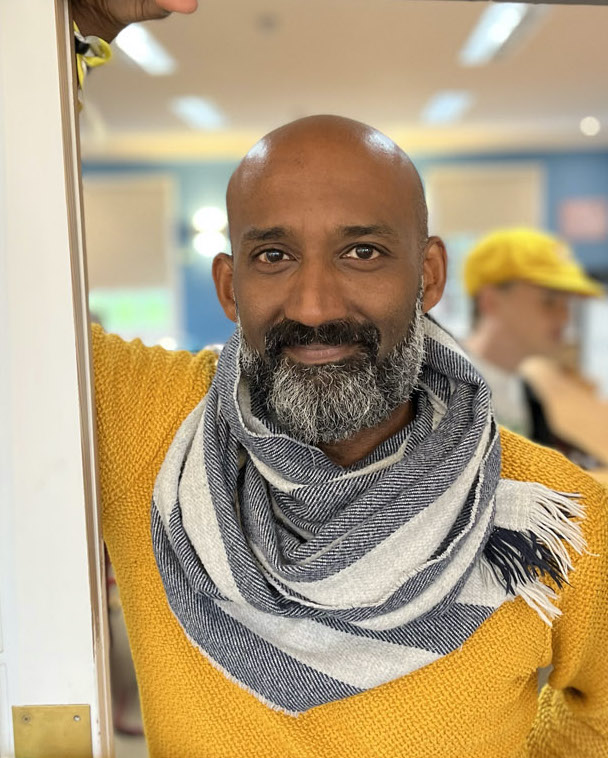
Black history is still a series of missing chapters from British history and we must be involved in the telling of these stories
Rohit Benjamin, Harrodian Equality, Diversity and Inclusion Co-Ordinator and History Teacher
Mr Benjamin showed how he included these ‘missing chapters’ in his own teaching by including, for example, the often overlooked part played by Commonwealth Indian and African soldiers in his lessons about the First World War. And he also emphasised the importance of ‘restoring missing chapters’ to subject teaching in all subjects. ‘You may not be a historian but you are a teacher,’ he pointed out. ‘Black British history encompasses events, figures and ideas across every subject. Music, Maths, Science, English....’
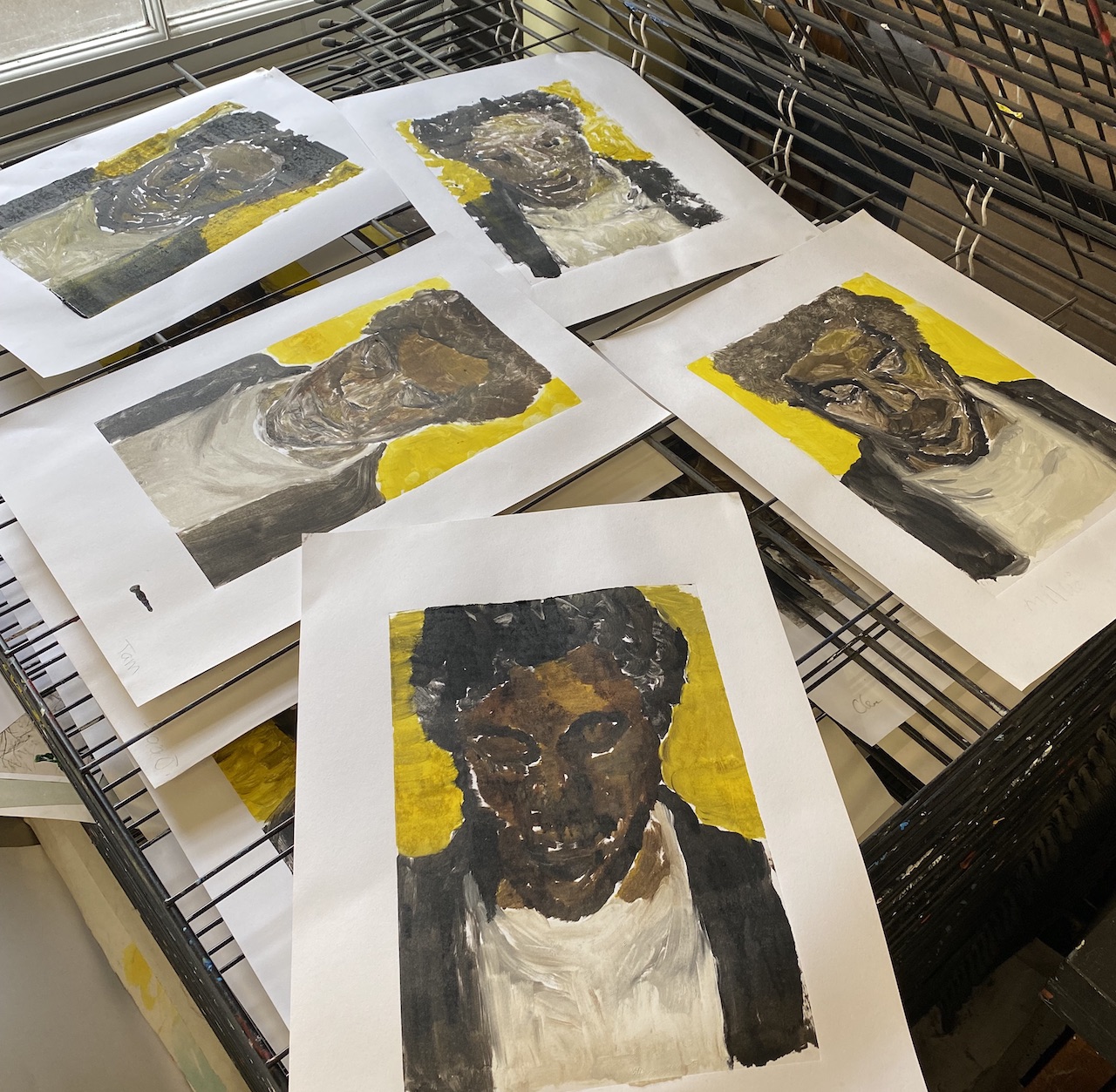
The surge of Black History initiatives over the past month suggest that Harrodian staff in all of our age group schools are already embracing Mr Benjamin’s message. 15s (Year 11) Art students have been studying Lynette Yiadom-Boakye's enigmatic and beautiful work devoted to portraits of imaginary black people, (above).
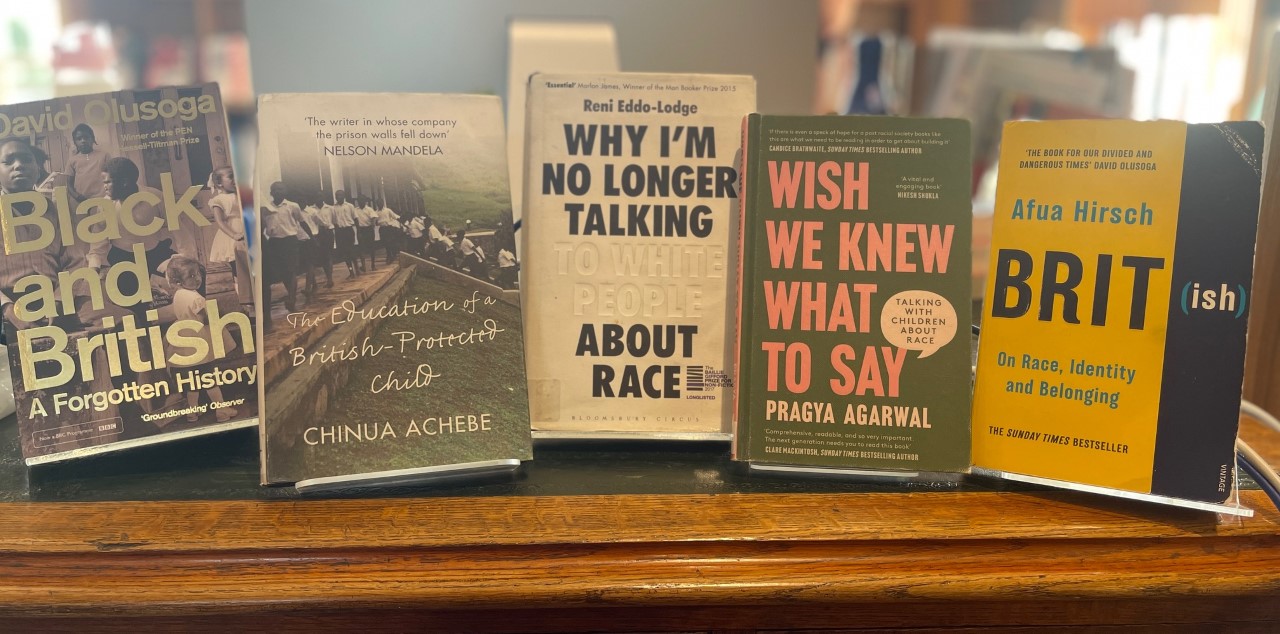
In the Senior Library, Ms Callon has been showcasing non-fiction must-reads such as Professor David Olusoga’s Black and British, (above) alongside a selection of modern fiction classics by black authors from Zadie Smith’s White Teeth to Malorie Blackman’s Noughts and Crosses, the latter newly selected as an English Department set text for the 12s.
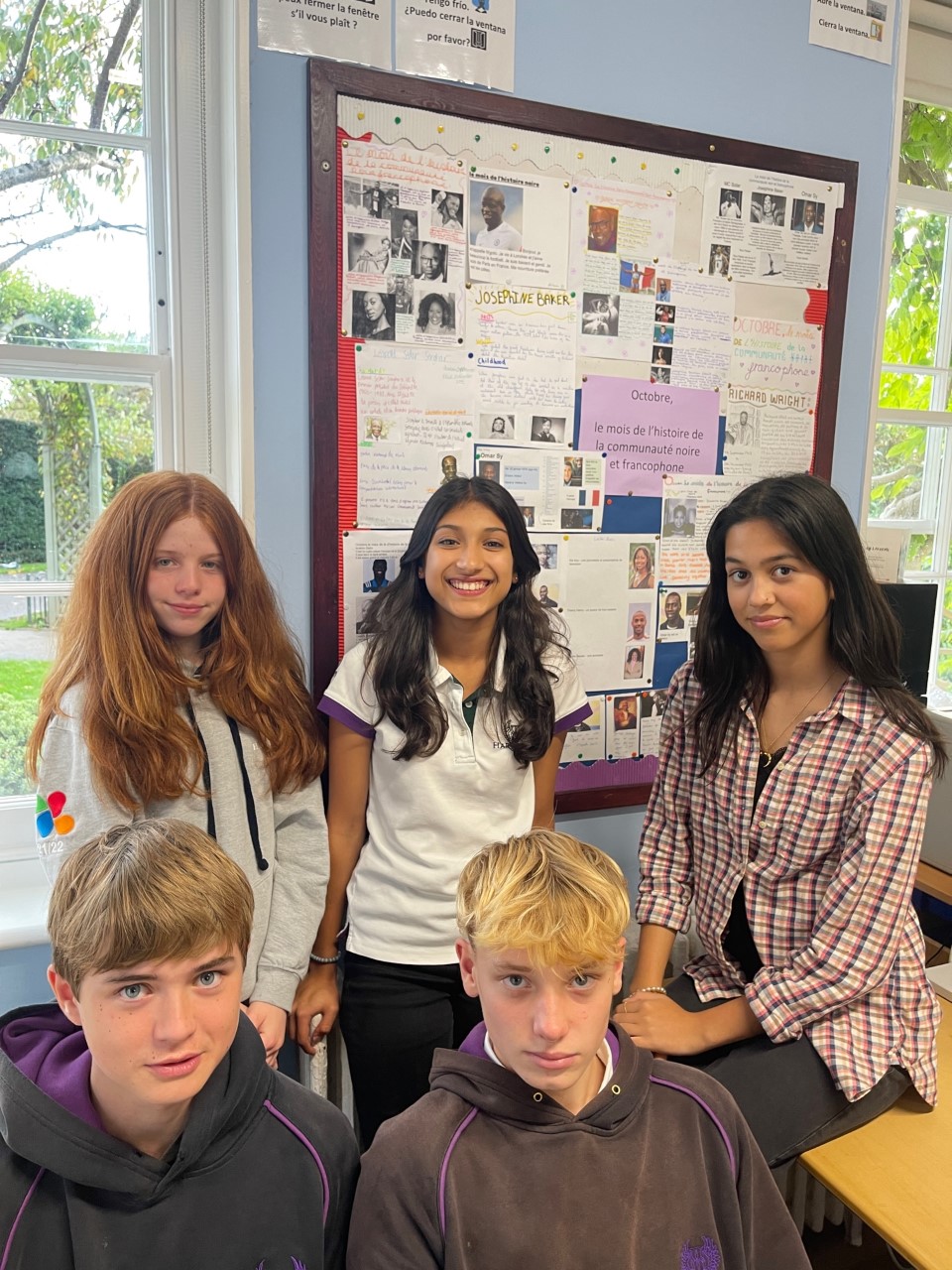
Black History Month has enjoyed an enthusiastic response from pupils too. When French teacher, Ms Eade asked pupils (among them, 13s Leela, Sasha, Grace, Gully and Hugh, above) to provide posters, photographs and write-ups celebrating significant Francophone personalities from the past and present, the flood of contributions featured musicians, sportspeople, dancers, entertainers, thinkers and politicians and filled two walls of the classroom. 'I really enjoyed exploring the different identities of famous, black French people,' says Leela. 'And the history we discovered is really rich and diverse.'
I really enjoyed exploring the different identities of famous, black French people. And the history we discovered is really rich and diverse.
Leela, Harrodian 13s pupil (Year 9)
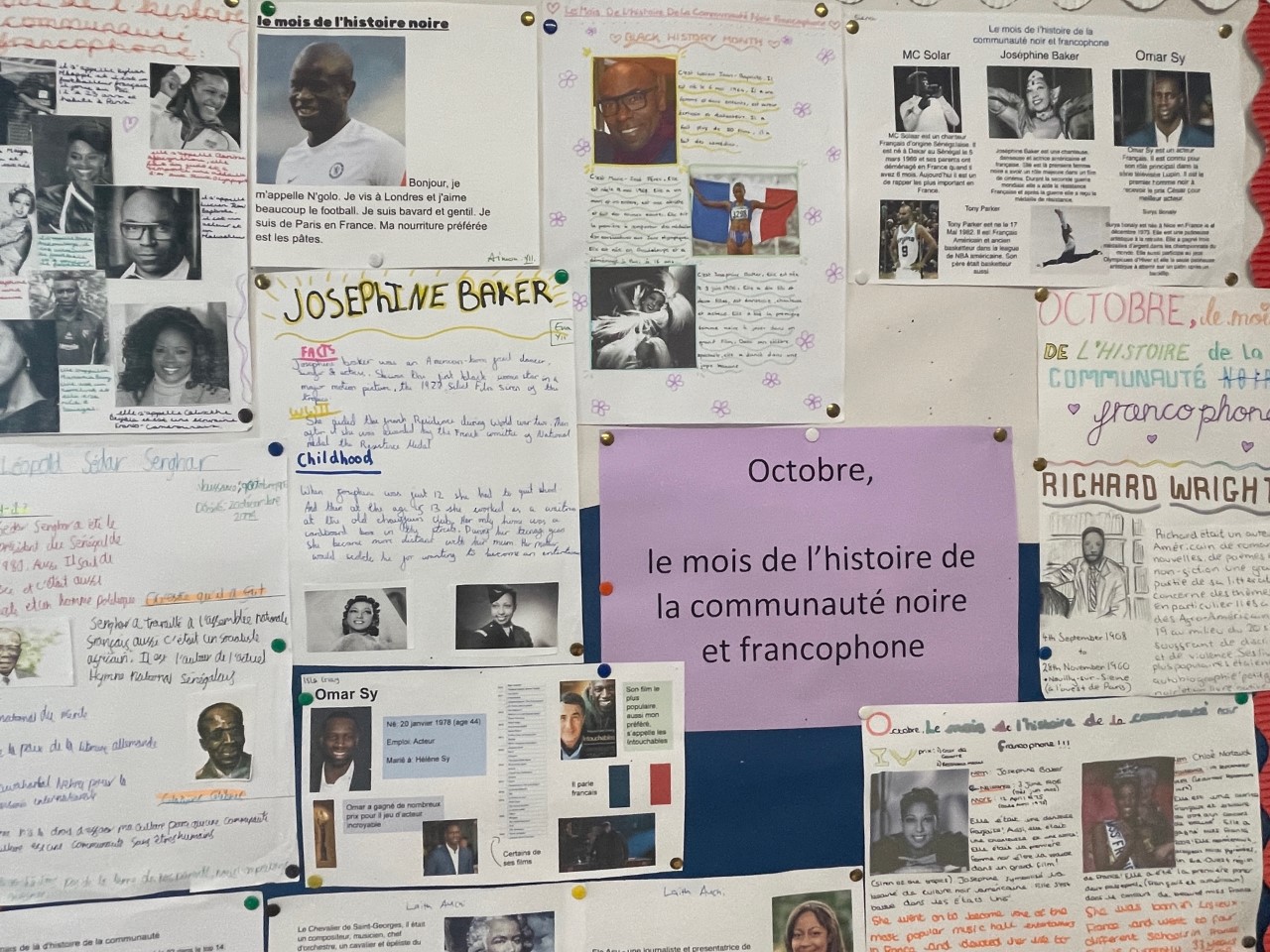
Black history has also featured strongly in teachers’ lesson plans during October. Thanks to the wonders of Zoom, top picture, 13s Geographers currently studying their World Issues topic, were able to learn about the shocking injustices of apartheid by meeting with Ingrid Lestrade, a friend of Harrodian Geography teacher Ceri Ruzzi who grew up in rural South Africa in the 1980s. ‘As geographers we need to learn about apartheid and its legacy today,’ says Ms Ruzzi. 'And Ingrid experienced apartheid first hand.' During a ‘remote’ question and answer session in the Harrodian theatre, Ms Lestrade described the crude and random methods by which apartheid rules assigned people to four racial groups – white, Indian, black and 'coloured' – and provided vivid recollections of the humiliations and hardships that defined her daily life as a member of a rural community in South Africa. Ms Lestrade triumphed over the system, becoming a lawyer and the leader of children’s charity, Inspire children and youth which continues to battle poverty and suffering in South Africa today.
You can watch a film about her work narrated by Ingrid Lestrade by following this link.

Meanwhile, Year 9 Biology pupils (13s) heard and watched a film telling the story of Henrietta Lacks, an African American woman who died in 1951. Henrietta's cancer cells are the source of the HeLa cell line, the first immortalised human cell line, and remain a vital tool in medical research to this day. ‘As a department, we decided that we wanted to concentrate on someone who didn’t get any acknowledgement for her contribution to medicine and biology and Henrietta Lacks’s story really speaks to me in that way,’ explains Head of Biology Andy Nolan. ‘She has had such a profound effect on medicine and saved countless lives. Yet she was treated with such disregard. Would she have been treated this way if she was white and/or a man?’
Henrietta Lacks has had such a profound effect on medicine and saved countless lives. Yet she was treated with such disregard. Would she have been treated this way if she was white and/or a man?
Andy Nolan, Harrodian Head of Biology
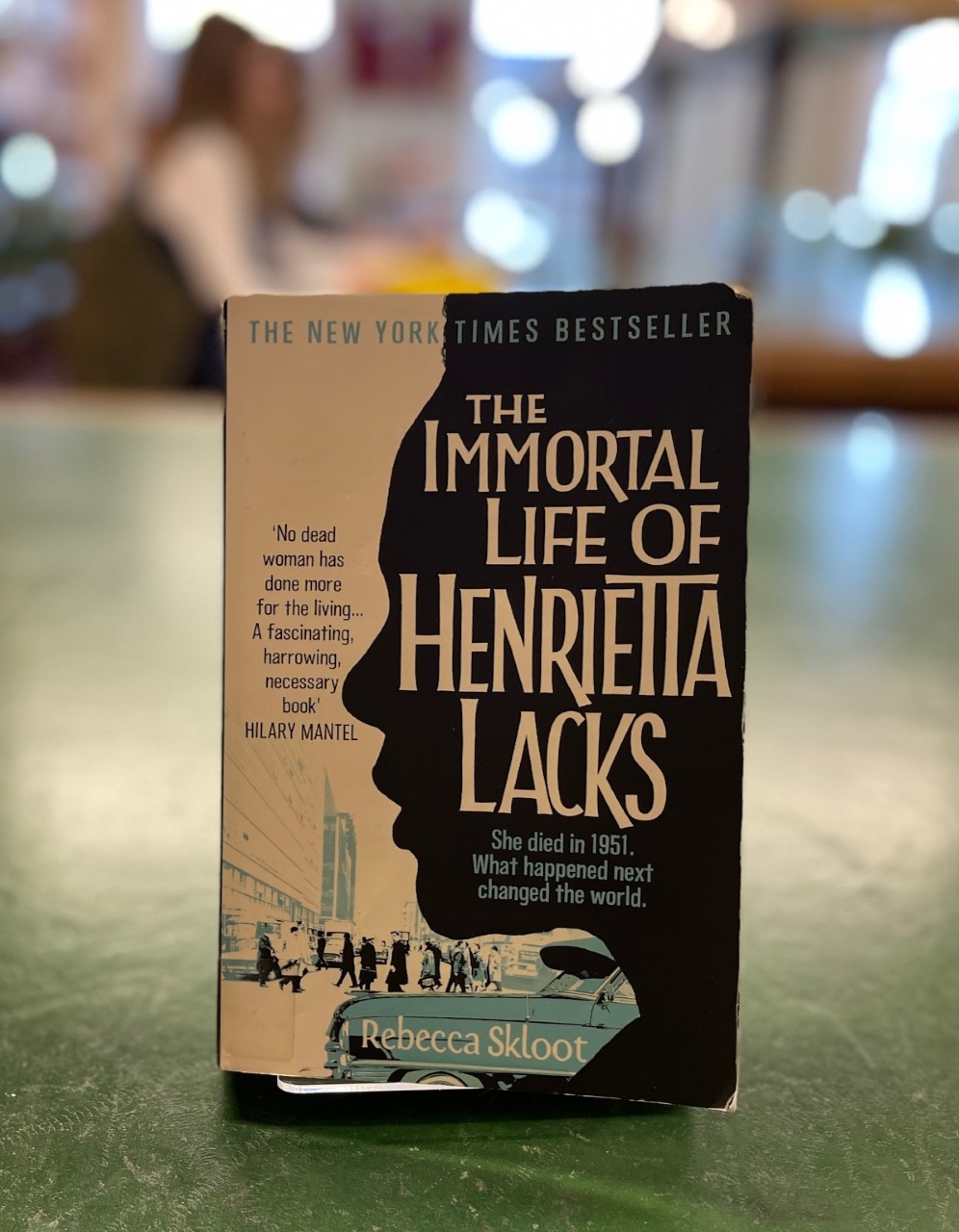
The Immortal Story of Henrietta Lacks, above, is available to borrow from the Harrodian Senior Library).

